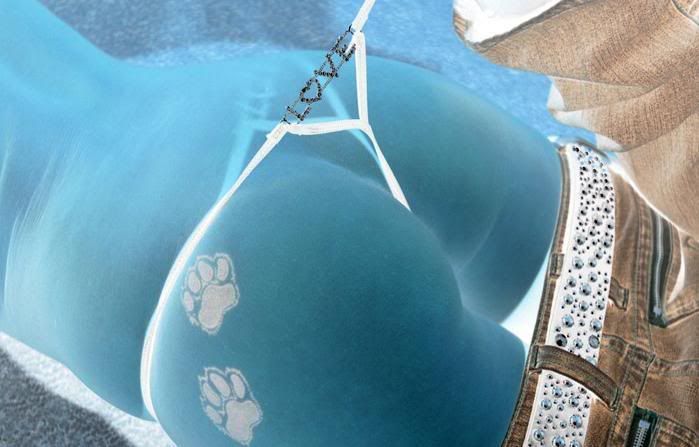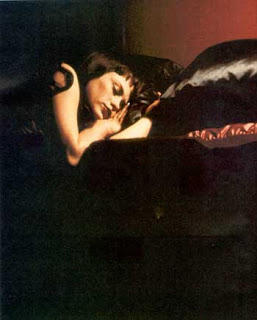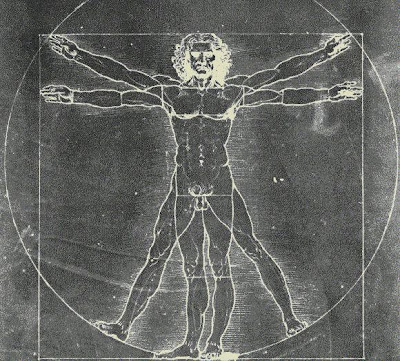
 There is no mistery to happiness.
There is no mistery to happiness.
Unhappy men [and women] are all alike. Some wound they suffered long ago, some wished denied, some blow to pride, some kindling spark of love put out by scorn - or worse, indifference - cleaves to them, or they to it, and so they live each day within a shroud of yesterdays. The happy man [or woman] does not look back. He doesn't look ahead. He lives in the present.But there's the rub. The present can never deliver one thing: meaning.
The ways of happiness and meaning are not the same. To find happiness, a man [or a woman] needs only live in the moment; he need only live for the moment.
But if he wants meaning - the meaning of his dreams, his secrets, his life - a man [or a woman]must rehabit his past, however dark, and live for the future, however uncertain.
Thus nature dangles happiness and meaning before us all, insisting only that we choose between them.


On sunday night, August 29, the view from outside the Alabaster Wing would have been shocking indeed.
A slender young woman was standing within, lit by a dozen flickering candles, barely clothed, exquisitively proportioned, her wrists tied togheter over her head, and her throat embraced by another binding...
Her entire body glistened in the unbearable August heat. Her long legs were bare, as were her arms. Her elegant shoulders were nearly bare as well.
The girl's consciousness was fading.
She tried to speak.
There was a question she had to ask. It was there; it was gone.
Then she said it again.
'My name', she whispered. 'What is my name?'






 Yet there it was: a brand-new answer to the most famous riddle in Western literature.
Yet there it was: a brand-new answer to the most famous riddle in Western literature.
Shakespere's Hamlet has been performed thousands upon thousand's of times, more than any other play in any language... Yet there is a strange void or vacuum at the core of the drama: all the action is founded on the inability of its hero [heroin] to act. The play consists of a series of evasions and excuses seized on by the melancholy Hamlet to justify postponing ...punctuated by anguished soliloquies in which he villifies himself for his own paralysis.
What stops him, and why should this inexplicable faltering - this seeming weakness, this almost cowardice - be capable of riveting audiences around the world for three centuries?
The greatest literary minds of our era, Goethe and Coleridge, tried but failed to pull the sword from this stone, and hundreds of lesser lights have broken their heads on it.



I sat in the Yard day after day for hours at a time poring over Freud and Shakespeare. 


 Freud's diagnosis of Hamlet came to seem increasingly irresistible to me, not only yelding the first complete solution to the riddle of the play, but explaining why no one else had been able to solve it, and at the same time making lucid the tragedy's mesmerizing grip.
Freud's diagnosis of Hamlet came to seem increasingly irresistible to me, not only yelding the first complete solution to the riddle of the play, but explaining why no one else had been able to solve it, and at the same time making lucid the tragedy's mesmerizing grip.
Here was a scientist applying his discoveries to Shakespeare. Here was medicine making contact with the soul. When I read those two pages of Dr Freud's interpretation of dreams, my future was determined. If I could not refute Freud's psychology, I would devote my life to it.


'I dreamt of Rome last night', Freud replyed. Freud drew on his cigar. 'I was walking , alone', he said. 'Night had fallen, as it has now. I came upon a shop window with a jewelry box. That of course means a woman...'.
A debate ensued on whether Freud's teachings dictated defiance of conventional sexual morality...
...he maintained that anyone who failed to see this implication had not understood Freud...Only cowardice would make men [and women] submit to civilized morality once they had understood Freud's theories...
...vigorously disagreed. Psychoanalysis demanded that a man [and a woman] be conscious of their true sexual wishes, not to succumb to them. When we hear a patient's dream we interpret it. We don't tell the patient to fulfill the wishes...'
As for Freud, he intervened on neither side, apparently content to watch the debate unfold.



I informed our party that it was time to board the train. Freud took a last look over the railing. A stiff wind blew in our faces. As we gazed at the lights of Manhattan, he smiled. 'If they only knew what we are bringing them'.
texto: "the interpretation of murder" por Jed Rubenfeld.
Imagens: Mulholland drive, Mar Português por X editado por 0.0, e Nikki next door, Paula Rego, Pierre Klossowksi







 Laura Harring exudes a seductively sinister femininity that the world hasn't seen since the heyday of film noir in the '50s. She's Rita Hayworth and Ava Gardner rolled into one perfect distillation of deadly womanhood.
Laura Harring exudes a seductively sinister femininity that the world hasn't seen since the heyday of film noir in the '50s. She's Rita Hayworth and Ava Gardner rolled into one perfect distillation of deadly womanhood.
The role she was waiting for -- the chance to display her finesse and femme fatale essence -- would come the following year, in Mulholland Drive. In the critically-acclaimed David Lynch film, she played an amnesiac named Rita and was apparently instructed by Lynch to act like a cat. The final product blew away many men, especially the lesbian love scene with Naomi Watts. Still single, currently lives in Los Angeles. In her spare time, she dances the tango.
 Play Boy: Can you explain your character Camelia's cruelty in that movie?
Play Boy: Can you explain your character Camelia's cruelty in that movie?
LEH: There's a sadomasochistic undertone to Camelia, and that's a valid type of sexual excitement. In hurting someone emotionally or physically, that's the way sadomasochists make love. And to be hurt. I don't think it's a conscious thing. As an actor I want to explore all depths of human feelings and experiences. We're complex beings.
PB: How was it doing the infamous lesbian scene with Naomi Watts in Mulholland Drive?
LEH: As actors it's incredible to be able to expand our experiences. I would never go around shooting somebody, but sometimes in a film you have to and your body reacts how you would feel, that is if you're truly present and honest at the moment.

I was nervous because it's very vulnerable to be naked in front of an audience and to have a new experience with somebody and something so intimate. So when I walked on set and everybody was yelling and the lights were bright, I felt very vulnerable. I wasn't naked yet, but I felt naked.
I was worried that from then on everybody would expect, would want, me to do nudity. It was so dark, then I remembered, "This is David Lynch, this is art." The movie's not a movie without the love scene. You have to have it, it's not gratuitous. If you don't have the love scene you don't have the obsession. It's erotic, but it's innocent. The first time I saw it I thought, "Oh, that wasn't bad at all." But when we shot it, it felt like it went on forever. Between takes we giggled.



Você não sabe o que é mais absurdo: se o próprio filme de David Lynch, chamado "Mulholland Drive", ou a tradução brasileira idiota que fizeram dele - "Cidade dos Sonhos". Como se não bastasse, fizeram questão de criar um cartaz que coloca em primeiro plano as faces de duas mulheres, aparentemente ingênuas, olhando para o céu, procurando alcançar seus ideais com o máximo de pureza e dignidade. A distribuidora deveria ser enquadrada no artigo 171 do Código Penal porque aquelas moças não possuem nada de pureza e dignidade - aliás, algo óbvio em se tratando de um filme de David Lynch.
 Muitos não suportam Lynch pelo seu gosto do bizarro.
Muitos não suportam Lynch pelo seu gosto do bizarro.
Mas, algo aconteceu com Lynch nos últimos anos. É como se ele não se importasse mais em fazer filmes segundo as regras dos outros, e sim segundo suas próprias regras, muito particulares. Nesta atitude quase terrorista, Lynch resolveu implodir com a gramática cinematográfica tradicional, para fazer apenas o que sempre desejou: cinema puro, baseado na manipulação sutil de som, imagem e atuação. Com a ajuda de seus fiéis escudeiros, o músico Angelo Badalamenti, a editora e sua esposa Mary Sweeney,
em fazer filmes segundo as regras dos outros, e sim segundo suas próprias regras, muito particulares. Nesta atitude quase terrorista, Lynch resolveu implodir com a gramática cinematográfica tradicional, para fazer apenas o que sempre desejou: cinema puro, baseado na manipulação sutil de som, imagem e atuação. Com a ajuda de seus fiéis escudeiros, o músico Angelo Badalamenti, a editora e sua esposa Mary Sweeney,
"Mulholland Drive" é uma espécie de continuação mais radical de "Lost Highway"  (1997), o filme em que Lynch começou a acabar com os alicerces do que seria uma história com começo, meio e fim para o espectador ameba dos nossos dias. Para provar que era um sujeito realmente perigoso, Lynch fez um parêntesis enganoso, "The Straight Story" (2001), na superfície uma parábola sobre a perseverança, mas na verdade um estudo sobre como um homem pode vencer o avesso que o corrói por dentro da sua alma. Mas, com "Mulholland Drive", Lynch volta a investigar o Mal com uma inventividade quase doentia, e seu sucesso talvez se deva ao fato de que este filme sempre foi aquilo que procurou durante toda a sua obra.
(1997), o filme em que Lynch começou a acabar com os alicerces do que seria uma história com começo, meio e fim para o espectador ameba dos nossos dias. Para provar que era um sujeito realmente perigoso, Lynch fez um parêntesis enganoso, "The Straight Story" (2001), na superfície uma parábola sobre a perseverança, mas na verdade um estudo sobre como um homem pode vencer o avesso que o corrói por dentro da sua alma. Mas, com "Mulholland Drive", Lynch volta a investigar o Mal com uma inventividade quase doentia, e seu sucesso talvez se deva ao fato de que este filme sempre foi aquilo que procurou durante toda a sua obra.
 e o diretor de fotografia Peter Deming, David Lynch usa o cinema para uma investigação em torno de um tema que o preocupa permanentemente - o avesso do ser humano.
e o diretor de fotografia Peter Deming, David Lynch usa o cinema para uma investigação em torno de um tema que o preocupa permanentemente - o avesso do ser humano.


Meeting David Lynch, in the suitably Lynchian city of Prague - Franz Kafka`s hometown - certainly fulfills expectations.
Unlike
most Hall of Fame candidates, Lynch arrives five hours early for our
interview, informing most of Prague that. "WE COULD DO THE INTERVIEW
NOW IF YOU WANT, BUT WE HAVE TO DO IT IN THE BAR. `CAUSE I`M A SMOKER,
SEE?"
His films have also courted controversy. Both Eraserhead
and Blue Velvet were dismissed as 'sick' by some critics, the latter
earning a reaction from feminists who object to the characterisation of
Dorothy (played by Lynch`s then girlfriend, Isabella Rossellini) as a
masochist.
Stanley Kubrick
screened Eraserhead for the cast and crew of The Shining, because that
was the mood he wanted to achieve. Are you a Kubrick fan?
I love
The Shining. If I see it on TV, no matter what else is on, I have to
watch it. It just gets better and better. And yet, when it cameout, it
didn`t make that much of a noise. But that`s the way it always was with
Kubrick`s stuff. It`s pretty amazing how they grow. But I like
everything he`s done. I love Barry Lyndon - it`s a great, great film.
There`s
a rumour you once considered remaking Lolita, with John Hurt or Anthony
Hopkins as Humbert Humbert.
Total
baloney. Why remake a perfect film? One of my all-time favourites? a
classic? Nobody can touch it. When [Adrian Lyne] did it, it was a joke.
I refused to see it.
Was
that true of your stalled Marilyn Monroe project, Goddess, based on
Anthony Summer`s book?
I
don`t know what would have happened if had directed that. But when we
said to the people in the studio who we thought killed her, they didn`t
want any part of it. It was an interesting thing to think about, but
nobody knows. Well, a couple of people know.
In effect, though, you and Mark Frost
'stole from the corpse' with Twin Peaks - the beautiful girl with a
dark side...
Well,
it`s a phenomenon that`s not just Marilyn Monroe - there`s a lot of
girls like that, it`s human nature. But I think that whatever it was
about Twin Peaks and Marilyn Monroe, that was a thing, you know, that -
speaking for me - I was real interested in.

Are you pleased that Fire Walk With Me,
almost universally panned on its release - except, notably, by Empire -
is enjoying a critical reappraisal?
Yes,
because I love that film, and I say now that The Straight Story is my
most experimental movie, but up `til then, Fire Walk With Me was my
most experimental fim.
Could you explain that a little
better?
No.

Transcendental Meditation
In
December 2005, Lynch told the Washington Post that he had been
practicing Transcendental Meditation twice a day, for 20 minutes each
time, for 32 years. [8] He advocates its use in bringing peace to the
world. In July 2005 he launched the David Lynch Foundation For
Consciousness-Based Education and Peace. Lynch is working for the establishment
of seven "peace palaces," each with 8000 salaried people practicing
advanced techniques of TM, "pumping peace for the world". He estimates
the cost at $7 billion; as of December 2005 he had spent $400,000 of
his own money and raised $1 million in donations from a handful of
wealthy individuals and organizations.[8]In December 2006, the New York
Times reported that he continued to have that goal.[9]
.

There is no mistery to happiness.
The happy man [or woman] does not look back. He doesn't look ahead. He lives in the present.















fotos: momentos felizes, muito felizes, por versão 0.01 (eu)





But there's the rub. The present can never deliver one thing: meaning.
The ways of happiness and meaning are not the same. To find happiness, a man [or a woman] needs only live in the moment; he need only live for the moment.
But if he wants meaning - the meaning of his dreams, his secrets, his life - a man [or a woman]must rehabit his past, however dark, and live for the future, however uncertain.
Thus nature dangles happiness and meaning before us all, insisting only that we choose between them. ,

























































































